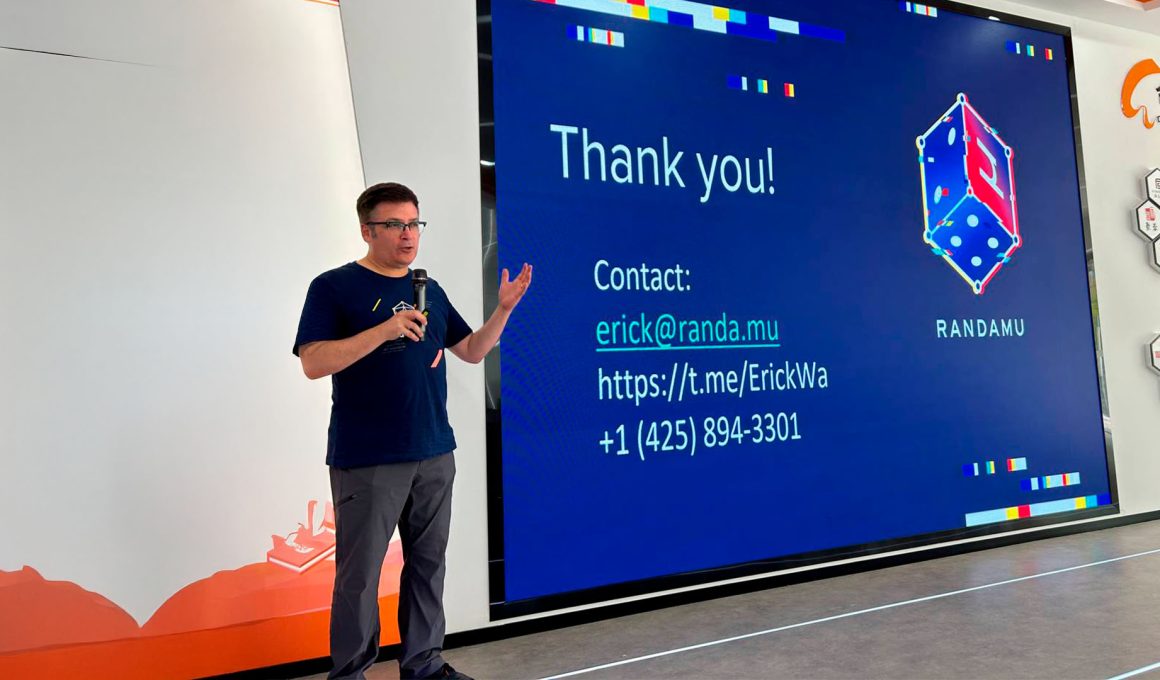Digital trust faces significant challenges as centralized platforms continue to dominate how we interact online. Current systems often prioritize shareholder value over user privacy, leading to data exploitation and security vulnerabilities. Erick Watson, founder of Randamu and former executive at Microsoft and Google, argues that decentralization offers the most viable path forward for protecting digital human rights while maintaining technological convenience.
Why Decentralization Is the Next Frontier of Digital Trust
Big tech platforms like Google, Facebook, and Twitter all have something in common. They make money by collecting user data and selling it to advertisers. For Erick Watson, this created a conflict he couldn’t ignore after spending most of his career at centralized companies. “I spent most of my career at places where trust is highly centralized, such as Microsoft and Google,” Watson explains. When he first got involved in Web3 technologies, it completely changed his perspective. “It was quite a shock to my system to learn about the different decentralized ways in which people were implementing new software features and functions.” This experience led Watson to start Randamu, a company focused on giving users more control over their digital privacy. His goal is simple: “help bring about a sea change in how we use technology in order to ensure that we embed digital human rights into our most basic features and functions.”
Building Trust Through Distributed Systems
Randamu started with something called D Rand, which stands for Distributed randomness. Watson admits it began as “somewhat of a curiosity” since randomness is “a very niche and specialized mathematical topic among cryptographers.” But this technology turned out to be crucial for secure online processes. The system works by connecting multiple network nodes that share a secret key. “No one node operator actually has the key all to themselves,” Watson explains. “As a result, each additional node increases the security assumptions and guarantees that the network is able to offer.” This approach has proven successful, with “the Drand network has run over 34 billion requests in the last 12 months.” Watson’s team has expanded beyond randomness into what they call the Decipher network. This platform gives developers tools for conditional encryption and time-locked cryptography, allowing them to control when and how data gets shared.
The Problem with Centralized Platforms
Watson sees major issues with how current platforms operate. “All of these platforms have been centralized. They are run predominantly by capitalistic sort of extractive organizations whose job it is to provide value to their shareholders,” he says. This creates problems for regular users. Sometimes the cost is obvious through subscription fees. But often it’s hidden. “Other times it can be more insidious when they actually take our data unbeknownst to us and offer it for sale to other parties who then bombard us with advertisements,” Watson notes. Worse, this information can end up with malicious actors who cause “life ruining events” by stealing financial information. Watson calls this a human rights issue. “We see this as something that everyone, by dint of being born on the planet earth, should be entitled to,” he states. “The fact that the infrastructure does not yet exist to enable this level of privacy, anonymity and security is tantamount to a crime against society.”
Three Pillars for Decentralized Adoption
Watson identifies three key areas that organizations must address when shifting toward decentralized models:
- Ease of Entry: The primary barrier remains technical complexity. “Today it’s simply too technologically challenging and too complex for most businesses to migrate over to a fully decentralized way of doing business,” Watson notes. Simplifying this transition represents a critical first step.
- Building Trust: Public perception of decentralized technologies often focuses on negative examples. Watson acknowledges that “when most people think of decentralized technologies, they think of things like Bitcoin and they think of things like some of the scams that we hear about in the news.” Overcoming these associations requires demonstrating real-world reliability and security.
- Demonstrating Measurable Benefits: Organizations need concrete evidence of decentralization’s advantages. “People in Web3 will encourage legacy operators to come over to Web3 because it’s the right thing to do, but they don’t often back that up with any sort of analytical framework,” Watson observes.
Watson believes artificial intelligence will accelerate decentralized technology adoption. Current AI systems face a fundamental problem: “How does an AI agent know that the data it’s been fed as part of its model is actually correct or true or accurate?” This question becomes critical as AI systems handle more sensitive information and make important decisions. “How do we make sure that they’re making the right decisions and that they’re following some ethical guidelines in their computation?” Watson asks. “These are questions that I believe only decentralized technologies are capable of answering.” This creates what Watson calls “a huge forcing function to drive and propel the advancement of these technologies in our world in the coming years.”
Connect with Erick Watson on LinkedIn to explore how decentralization can transform digital privacy.








